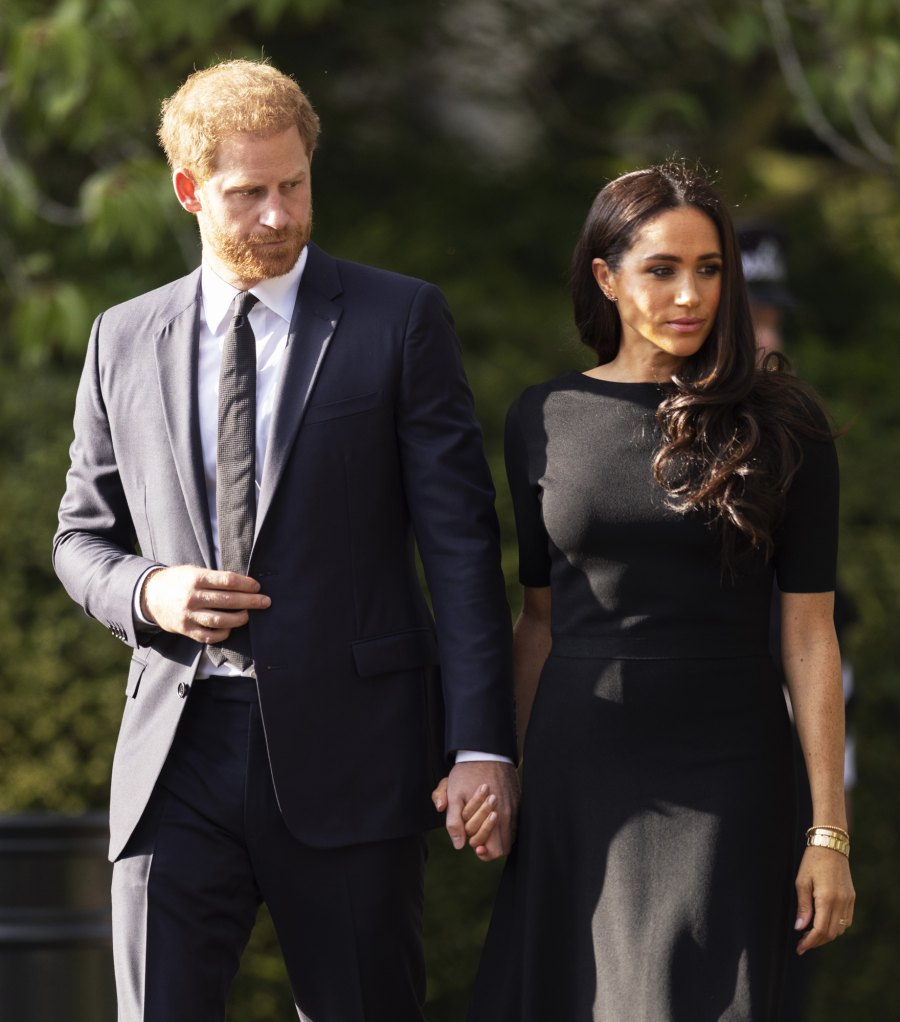The News
Prince Harry and Meghan Markle’s Children Denied Royal Titles
Prince Harry and Meghan Markle have been met with a surprising decision from King Charles III regarding the titles of their children, Arch and Lilibet.
While the royal couple was granted the titles of Prince and Princess for their offspring, the King has made it clear that their children will not be referred to as His Royal Highness or Her Royal Highness.
This unexpected move has reportedly left Prince Harry and Meghan Markle in a state of fury over the King's decision.
Expressing concerns about the security implications for their children, the Sussexes have argued that being recognized as Prince and Princess is essential for ensuring adequate levels of royal security.
They have pointed out the status of Princesses Beatrice and Eugenie, who possess HRH titles despite not being working royals.
A source close to the couple revealed that Harry and Meghan have been unwavering in their insistence that Arch and Lilibet should be acknowledged as Prince and Princess.
Despite ongoing discussions in recent weeks, the couple's hopes were dashed when it was confirmed that their children would not carry the prestigious HRH titles.
The insider explained that while the children can hold the titles of Prince and Princess, the HRH designation has been withheld due to their non-working royal status.
This decision has sparked debate among royal enthusiasts, with many questioning the implications of the children's lack of HRH status.
Adding to the intrigue, concerns have been raised about Prince Harry's extended absence from his children.
Speculation has arisen about the level of involvement of nannies in caring for the royal offspring, particularly in light of Prince Harry's prolonged stays away from home.
Comparisons have been drawn between Prince Harry's parenting approach and that of other royal family members, leading to discussions about his commitment to family life.
As Prince Harry and Meghan Markle navigate the complexities of royal titles and family dynamics, questions have surfaced about the significance of HRH titles within the royal hierarchy.
Originating from the terms His Royal Highness and Her Royal Highness, these titles carry special privileges and responsibilities within the royal family.
Established by King George V in 1917 and later modified by Queen Elizabeth II in 2012, HRH titles confer official recognition, financial support, and security provisions for working royals.
The evolution of HRH titles reflects the changing dynamics of the British monarchy, with each ruling monarch shaping the criteria for bestowing such distinctions.
Queen Elizabeth II's decision in 2012 to extend HRH titles to the children of Prince William underscored the importance of lineage and succession within the royal family.
However, the omission of specific details regarding Prince Harry's children has left room for ambiguity and interpretation within royal circles.
Amidst ongoing debates about royal protocols and traditions, the focus remains on Prince Harry and Meghan Markle's quest for recognition and acceptance within the royal fold.
As they advocate for their children's rights to royal titles and privileges, the couple faces scrutiny and speculation from both supporters and critics.
The intricate interplay between tradition and modernity continues to shape the narrative of the royal family, highlighting the challenges and complexities inherent in balancing personal aspirations with public expectations.
In a world where every royal decision is scrutinized and debated, the fate of Arch and Lilibet's royal titles serves as a poignant reminder of the enduring legacy of the British monarchy.






























































